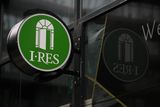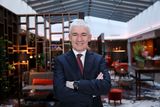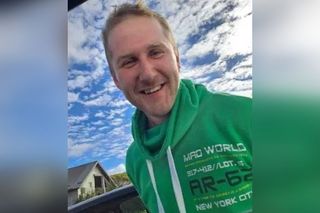Taking on the tech giants in the battle for young talent
The chairwoman of one of the world's biggest advertising agencies is bringing more than a thousand young leaders to Dublin.
Kate Robertson
Kate Robertson is a human dynamo throwing off warm, intelligent energy as she rushes around Dublin's Marker Hotel. The London-based chairwoman of one of the world's largest advertising agency was in Dublin last weekend to organise the One Young World conference which will bring more than 1,300 young leaders from all over the globe to Dublin this autumn.
Robertson clearly loves advertising but worries about the future of her industry which is still grappling with the changes brought about by the internet.
"Advertising is a wonderful, creative industry full of people who can talk and think but everything has changed recently," says the chairwoman of French advertising and publishing giant Havas.
"In the 1980s we lived fat on 15pc commission on media space which was a lot of money then. We could employ anybody we wanted. We had money!" she says as she snaps her fingers for emphasis. That 15pc commission was chipped away by the rise of so-called media independents who encouraged large companies to by-pass advertising agencies.
The internet was the second big challenge.
"We did all try to see the internet but couldn't see Web 2.0. But hey, we don't need to beat up ourselves up because Bill Gates didn't see it either," she laughs.
While many of us have probably been influenced by the US television series 'Mad Men's' depiction of the advertising industry in New York in the 1960s, Robertson's period as a young advertising executive was Thatcher's London and the 1980s; a period when British advertising was famous around the globe as companies such as Saatchi & Saatchi and J Walter Thompson ruled the roost.
Today, with less money around, Robertson is battling with a common problem facing many Irish companies; a skills shortage.
"I think the biggest thing that is hitting our industry… is a talent war of seismic proportions and its called Google. I always say to the Google guys; 'Go away. You're eating our talent'," she says. To counter this, Robertson has introduced training schemes for many of the businesses within Havas. "Seventeen-year-olds want to work for Google or start their own companies," she complains.
To stop this, she has hired 48 interns in the past 15 months. "I just want to know we are growing our own because I can't hire them."
She has a pithy recipe for those seeking career success: study the law and the art of public speaking. It was an interest in the latter which turned her from a happy-go-lucky girl growing up in apartheid South Africa into a teenager who slowly became aware of the injustice in her home country.
She remembers her South African childhood as idyllic until the unfairness of the system began to dawn on her.
"The truth to tell, as a youngster it was wonderful," she remembers. "What was so clever about the apartheid set-up was the black people you had contact with, such as your nanny and gardener, were the most wonderful people in the world. You didn't see the problem because they lived in rooms on your property."
Her eyes were opened at the age of 16 when the talented debater began debating with pupils from other schools. The moment she became interested in social justice was when "a journo was standing up saying this council will pass a vote of censure" after political detainees were forced to jump to their deaths from the third floor of John Foster Square police station in Johannesburg.
Coming from a long line of debaters, Robertson remains passionate about public speaking. "In life, you've got to be able to carry a room," she says. "When I teach young employees, I want them to be able to think on their feet."
Looking at Robertson's early life in South Africa and her adult life in the UK, it is easy to see where her intense interest began in helping the young from rich and poor countries debate global issues - a sensibility that led her to co-found the One Young World charity a few years ago.
The October meeting will bring a host of well known business figures to Dublin such as Brazilian social media entrepreneur Eduardo Saverin, Unilever boss Paul Polman and Sudanese-British telecoms billionaire Mo Ibrahim.
Political figures coming here include former presidents from Panama, Colombia, Peru, Mexico and Bolivia. Irish delegates will include former president Mary Robinson and Senator Martin McAleese who will speak about the Irish peace process.
Many big names but the real stars will be youngsters. They are from more than 180 countries and seemingly from every side of every political divide in many of the world's worst trouble spots from the Middle East to Africa and Latin America.
The idea for One Young World came from a casual conversation with a colleague. But it took two years to make that casual conversation into a reality.
"It took me 10 months to get Bob [Geldof] and 12 months to get [Archbishop Desmond] Tutu," Robertson says.
Since then, One Young World has staged four conferences across the globe.
Dublin had to beat off competition from Edinburgh, Hong Kong and Singapore to host this year's summit.
Like the World Economic Forum in Davos, it can sometimes be difficult to say exactly what conferences like this actually achieve but Robertson has no doubts.
"It is absolutely the place where governments and business and NGOs and all sectors have all realised that if you want to see the leaders of tomorrow, this is where you are going to find them," she says.
"Our delegates are people who are genuinely changing the world and changing the world now. The best thing is creating the networks that allow them to do what they are doing and accelerating what they are doing... My dream always, and the animus behind this energy, is that the world needs great leaders."
Log on to independent.ie to watch a short interview with Kate Robertson and Thomas Molloy.
Join the Irish Independent WhatsApp channel
Stay up to date with all the latest news














